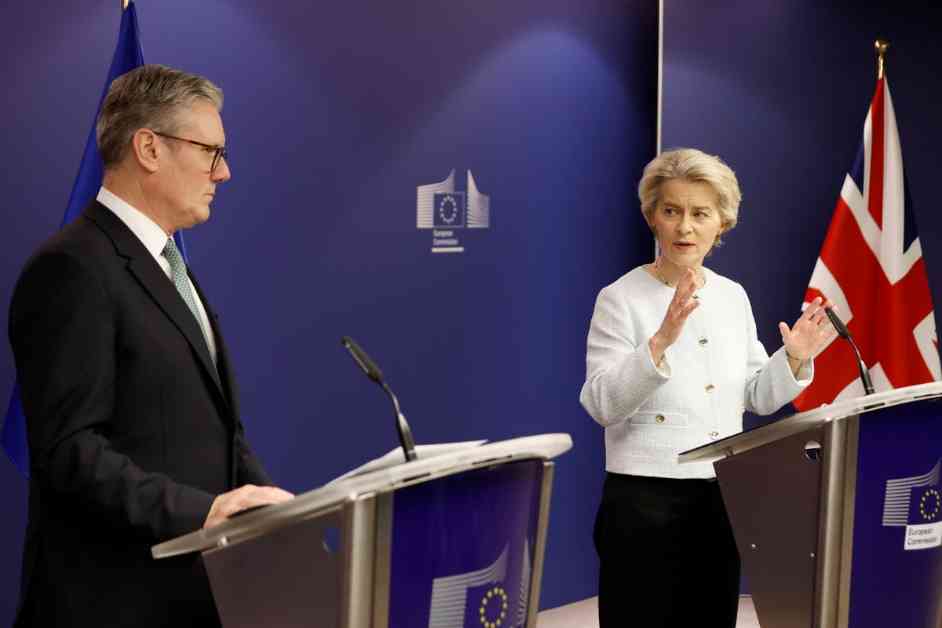Brussels is moving forward with its plan to establish a youth free movement deal between the European Union and the UK, despite opposition from Sir Keir Starmer. The European Commission has identified a youth mobility scheme as a crucial demand as the UK seeks to reset its relationship with Brussels post-Brexit. Official documents reveal that the European Council has placed the discussion of this agreement on its agenda for Friday, indicating the bloc’s prioritization of the proposal. While the EU has previously mentioned the idea informally, it has never formally proposed it.
Senior EU officials believe that it is premature to consider the youth mobility deal as a non-negotiable requirement for the bloc. Mike Galsworthy, chair of the pro-EU European Movement, emphasized the importance of discussing youth opportunities and mobility in negotiations with Starmer, urging the UK to engage in these conversations. He highlighted the widespread support for the principle of youth mobility among the UK public and suggested that the UK could tailor the agreement to suit its needs. Sandro Gozi, the new chair of the European delegation to the EU-UK Parliamentary Assembly, expressed the EU’s interest in prioritizing a youth free movement deal to strengthen ties with Britain in the wake of Donald Trump’s re-election.
Although Sir Keir has ruled out rejoining the EU in his lifetime, he has committed to making Brexit successful by renegotiating certain aspects of the agreement. However, the UK government has stated that it has no intentions of considering an EU-wide youth mobility scheme, despite calls from various politicians to reconsider. The proposal would allow young adults aged 18 to 35 to live and work freely in both the UK and EU member states for up to two years.
Critics of the UK government’s refusal to explore the youth mobility scheme argue that it is a missed opportunity to enhance relations with the EU and provide valuable opportunities for young people. Lord Heseltine, president of the European Movement, believes that overlooking this scheme contributes to a lack of understanding of the negative consequences of Brexit. Liberal Democrat leader Sir Ed Davey has also urged the prime minister to rethink his position on the deal and prioritize rebuilding the UK’s relationship with the EU.
In conclusion, the discussion around the youth mobility scheme highlights the complexities of the post-Brexit landscape and the diverging priorities of the UK and the EU. While the EU sees this agreement as a way to strengthen ties with Britain, the UK government remains hesitant to consider it. The outcome of these negotiations will have significant implications for young people on both sides of the channel and may shape the future of UK-EU relations.












